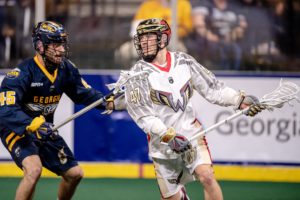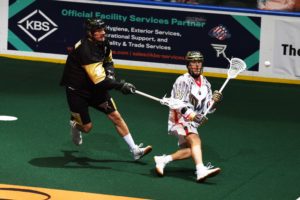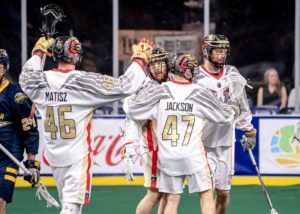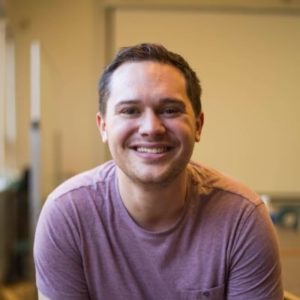When Kyle Jackson’s sister, Karlee, was attending Western University in London, England, she was enrolled in classes that taught her about Native American history. Her brother, Philadelphia Wings forward Kyle Jackson, was inspired by his sibling’s studies because the history she had learned about was their people’s history.
Members of the Ojibwe people from the Aamjiwnaang First Nation, this generation of Jackson’s are only 25% Native American. Kyle’s blonde hair and blue eyes are visual indications that he is different than other Native Americans. However, his passion and desire to understand and embrace his Native roots run deep within him.

In fact, upon learning the meaning behind why lacrosse is traditionally played and how it can be used to help people, he realized that his values and thoughts about the game were quite similar.
“Lacrosse is something that we get to just play,” Jackson said. “As much as we want to win and not lose, it’s not the end-all-be-all, and that’s how I’ve always approached lacrosse without even knowing what was being taught to Indigenous people about what lacrosse meant.”
Jackson understands that he needs to navigate a fine line when educating children about Native American culture – like when he was part of the Halifax Thunderbirds reading program – because he did not grow up in that environment. He knows he did not grow up in these communities. He knows that he was not educated on the traditions and history of his people in the same way many of his Haudenosaunee Nationals teammates were.

That is why he makes a concerted effort to understand as much of what is, and has been, going on with his people before he speaks on such matters.
“I’m not an expert, so I’m never going to speak on matters that I don’t fully understand,” Jackson said. “In today’s day and age, if they want to Google something, they can, and they can understand it just like I can. For me, I want to be educated. I want to understand what’s going on in the world so that when I show up on the world stage and at international games, I don’t look like I’m just a guy riding the coattails of Native Americans.”
However, despite his past and his limited knowledge of these matters, Jackson has a unique story to tell kids when teaching about Native American culture. He leans into being different because he knows that no matter where you come from or how you were raised, if there is a connection between people, it shouldn’t matter what those differences are.

“I always try and navigate on that avenue,” Jackson said. “I try and show kids – and this goes for all kids – that it doesn’t matter what you look like, you can fit into your community in any way you want.”
Regardless of his lineage, Jackson struggled to fit in when he and his family were included in Native American ceremonies. Not looking the part and having the same upbringing made him feel like he didn’t have a right to be at these events.
“Growing up, it felt uncomfortable going to Native American events because it didn’t feel like I was supposed to be there,” Jackson said. “It wasn’t until I was a lot older that I started to join the World teams and play with those guys that I started to get comfortable with it.”
As he has grown up and embraced his roots, Jackson feels much more like part of the community. It is a part of who he is, and he is proud. Now with the Philadelphia Wings, he will be making great strides to educate more kids about his culture, just as he has increasingly done throughout his NLL career.
By Adam Levi
